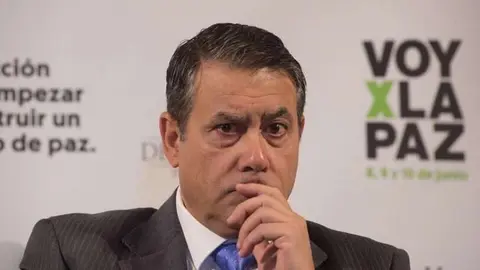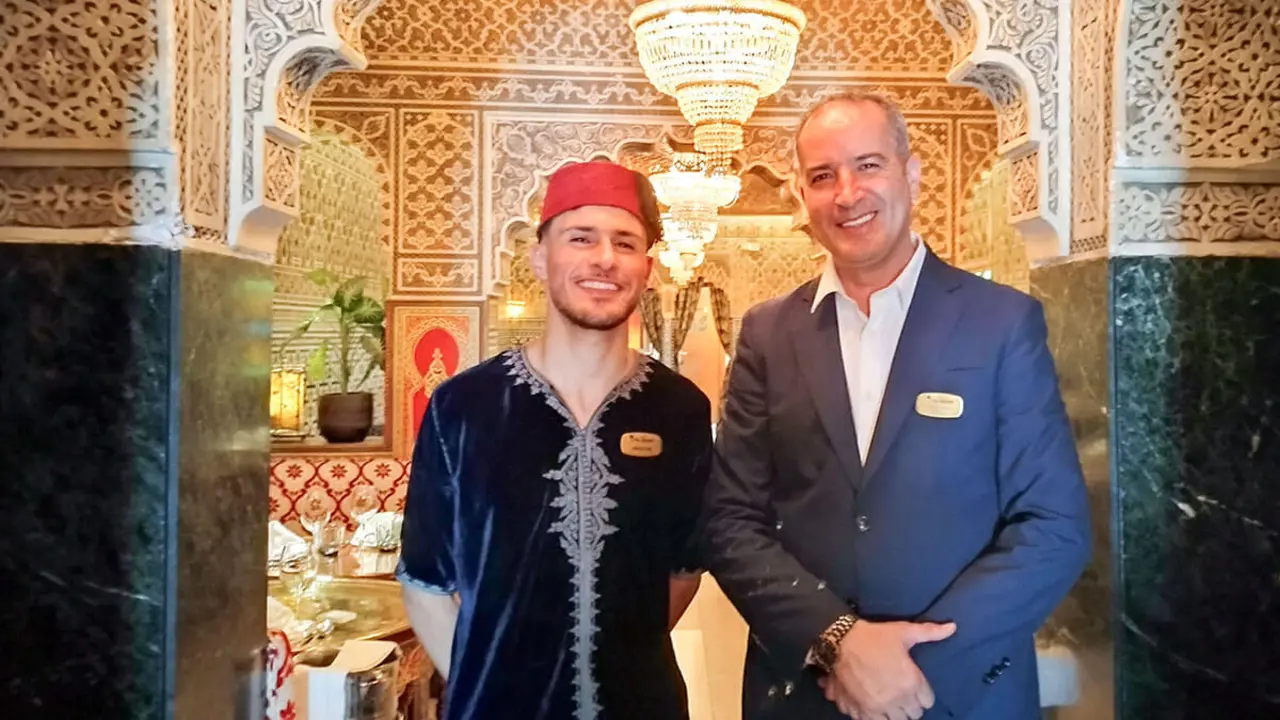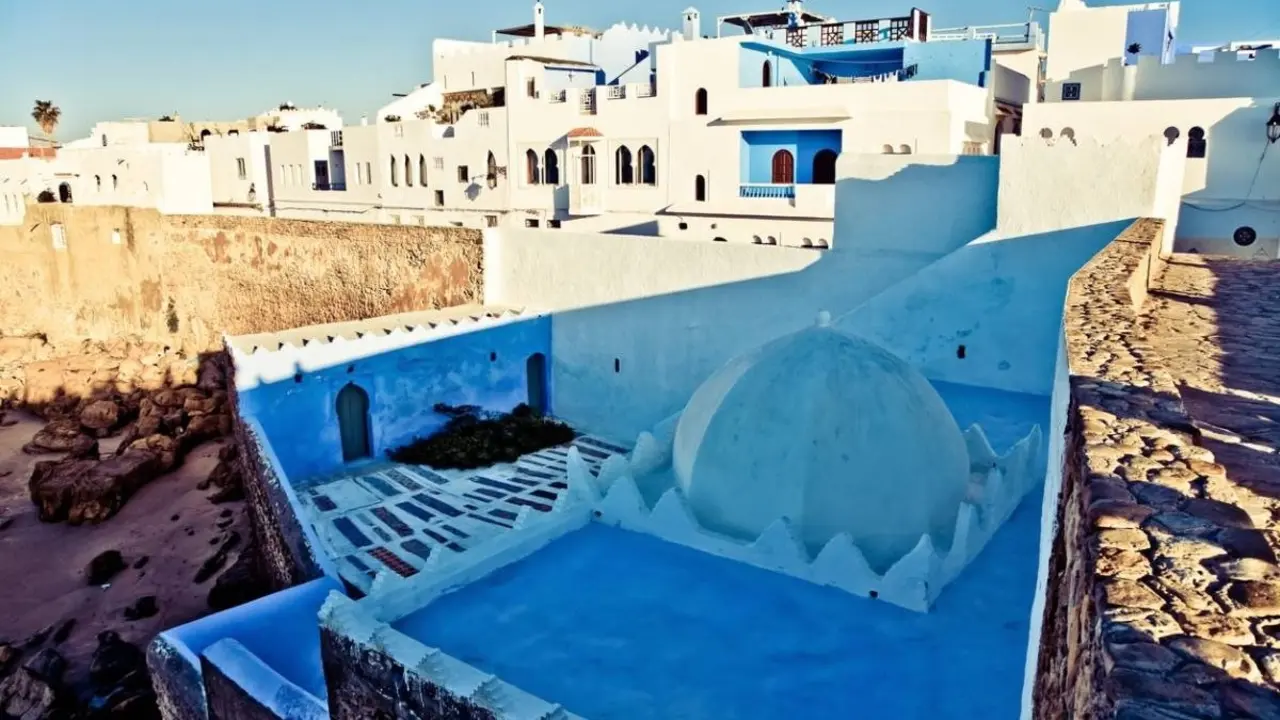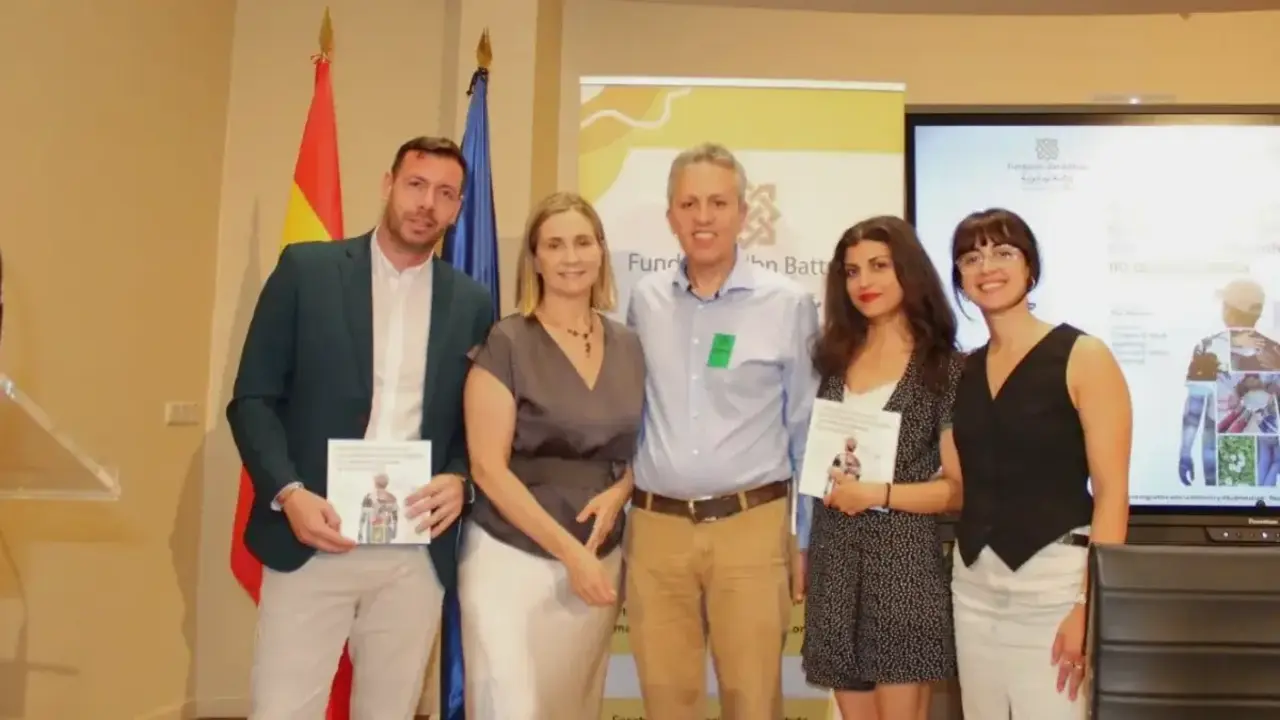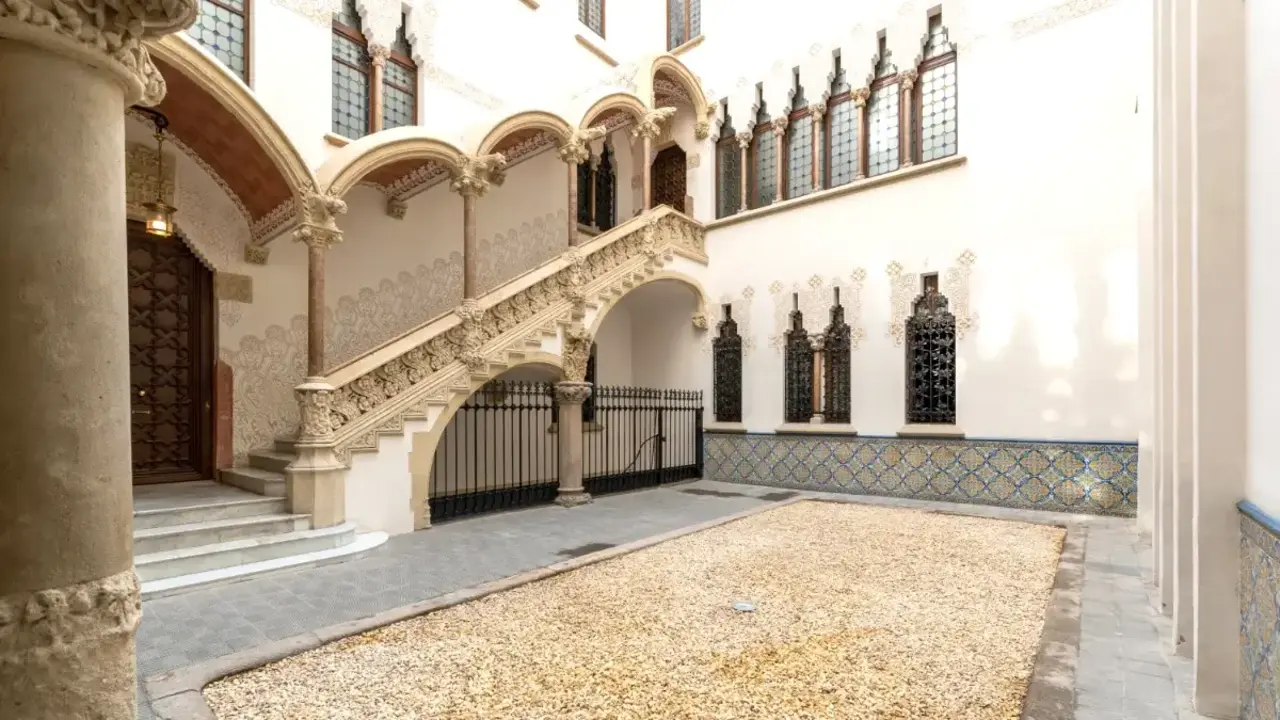The B side of the World Cup in Qatar

The World Cup in Qatar has had its B side, with the suffering of the victims of labour abuses during the construction of infrastructures for the Qatari World Cup. The Foundation for Democracy has presented a photographic exhibition in Madrid that brings together the testimonies of widows and workers who survived the harsh conditions suffered during the organisation of the 2022 World Cup.
It is estimated that more than 16,000 workers died in the construction of the World Cup infrastructure and the Foundation for Democracy has presented for the first time in Madrid the exhibition "The B side of the World Cup". A photographic exhibition that brings together some of the testimonies of the survivors and relatives of the deceased workers who died in the construction of the infrastructures of the World Cup in Qatar. The exhibition opened on 2 June and can be enjoyed for three weeks at El Espacio Jovellanos, located at Calle Jovellanos, 6, in the Spanish capital.
The Foundation for Democracy estimates that the Qatar 2022 World Cup may have left up to 16,000 migrant workers dead between 2010 and 2020 as part of the preparations for the World Cup. The investigation began in 2016, after several local human rights organisations began reporting systematic abuses of workers displaced to Qatari soil.

The Foundation travelled with a team to Nepal just a few months ago to meet with some of the survivors and the families of those who did not return. According to Guillermo Whpei, president of the Foundation, "the idea of this exhibition, which is itinerant and will tour several Spanish cities, is to continue giving a voice to the families of the deceased and the survivors. There is still much to be done. There are many families who went into debt to send their relatives to work in Qatar and now they have lost their family member and are still in debt that they will never be able to repay. We need to push for that amount of money to be condemned, either through Qatar or the companies that had them under contract. It is the only way they can move forward".
The Foundation for Democracy is an Argentinean institution that works for the defence of human rights and the strengthening of democracy, committed to the fight against urban violence and contemporary slavery. It has managed to become a pioneer and benchmark in the field at national and international level and Atalayar was able to talk to Guillermo Whpei himself about the exhibition and the abuses perpetrated in Qatar on the occasion of the World Cup.

Madrid hosted the exhibition "Behind the Passion. The B side of the World Cup". What can you tell us about it?
First of all, thank you for the space to spread noble ideas. The exhibition is very heartfelt, imagined. When the World Cup began in Qatar, our team and I were in Nepal visiting village by village and what we wanted with the exhibition is to reflect those views, that spirit, that scourge and the flip side of the euphoria of sport, against the most forgotten face of the forgotten, of the most forgotten.
I think that when you see that the exhibition is there and the families and victims expressing through their eyes and actions the pain that caused them the illusion of looking for work in Qatar, we feel that we have taken a first step towards showing the truth. The truth is the first step towards justice, that brave, important step. We know it is counter-cultural because football is a passion of multitudes. Argentina was the champion, where I come from, but we also know that it is not at any price. Above all, there is humanity.
There are testimonies from Nepal, families who lost their savings to send their children to Qatar to work and ended up being victims of the harsh working conditions in the Qatari country.
First they lost their illusion. They had an illusion of progress, of being able to feed their families with a decent job that would allow them to advance in a very difficult society. First they lost the illusion, then they lost their savings because they went back in debt. There is a very perverse system that recruits them, gets them into debt and they can't go back. When they arrived in Qatar, the job they were promised was not what they were told and they were not going to earn what they were told, they could not return because they were in debt and they had to stay at any cost. First the illusion of advancement is destroyed, then they are in debt and the breadwinner is lost. It is estimated that there are more than 16,000 deaths in Qatar around the World Cup competition from 2010 until the World Cup practically started. This is information from the Qatari government, you can go on the government website and see the death toll. The interesting thing is to know the reasons. They say they are natural deaths due to cardiac arrest. And the question is: who doesn't die of cardiac arrest? Everyone's heart stops. The problem is what is the cause. We have many death certificates knowing the cause of death.

I understand it's linked to working conditions....
Linked to the climate, the number of hours, poor nutrition, poor hydration, overcrowded housing, all linked to this adverse situation. Fundamentally, it was linked to forgetfulness, to the lack of response. You couldn't complain, the company owned the choice of whether or not the person who was there would work or not.
They were very tied down there, weren't they?
When they arrived in the country, their passports were taken away and they were assigned whether they liked the job they had been assigned to on arrival or not, although in their country of origin, in this case Nepal, but also in the Philippines, Kenya, Sri Lanka and others like Pakistan, they were promised a different salary and a different job. Their passports were withheld, they went to work in high temperatures, with long working hours of up to 18 hours a day, with very little drinking water, which is why many drank sea water and why there were so many kidney patients waiting for transplants in Nepal. What are we going to celebrate? What reason do we have to celebrate? How do we tell our children after 16,000 deaths in Nepal that we are going to celebrate the triumph of a country? It is a World Cup where everyone loses.
The Foundation collected testimonies from relatives and victims in Nepal, which is where this exhibition comes from. What did you find? How can it be described?
We were working remotely with local organisations, we were getting information, we produced a very interesting report called "Behind the passion"; among other people, we took it to Pope Francis, we were able to analyse it and that led to an invitation to Gianni Infantino, president of FIFA, from Pope Francis and we didn't get a response.
We worked hard with the information we had, with other entities committed to the cause, but when we arrived in Nepal, the reality overcame us. We were overwhelmed by the number of cases, by the injustice, by the global apathy and because we went strategically just when the World Cup was starting. And Nepal is not a footballing country, there was not a television set watching the World Cup and the other side of the coin is 16,000 dead, sick people. To understand Nepalese culture, they were not united by Western love, there were many arranged marriages and so the situation arose where women lost their breadwinner, their only income, and today they have nowhere to turn. The victims are submerged in oblivion and that is why I say that a big step would be to make them visible first and then to provide financial compensation.
This is the great objective, to make the problem visible, to say that this happened and that these people exist and have this pain. People who have been left with nothing and the suffering of a person is never necessary, but even less so with rich countries like Qatar. It has no justification whatsoever, knowing that there is no human justification for the suffering of others.
In your opinion, what has Qatar gained as a country by holding the World Cup?
Visibility, to show itself as a civilised, inclusive country that smells of French perfume. To be a country we can all talk about, a country where coexistence was possible, which was not so bad, where there was a lot of prejudice. To show that it was finally an orderly and accepted country. I think that Qatar, like all countries with these characteristics, needs to be accepted by the world and I think that they have chosen football, the spectacle, to be able to introduce themselves into world culture and to be able to penetrate their culture in the more developed, more European and more American countries.

Let's talk a little about the work of the Foundation for Democracy and the International Museum for Democracy, in addition to this denunciation of the Qatar affair.
We are always obsessed with tackling uncomfortable issues. I think that's what it's all about. We know that democracy is important, that it can be improved, that it evolves day by day with intervention, we know that it is a collective construction, but there are issues to which democracy is indebted, such as forced migrations of all kinds, mainly due to poverty, environmental problems, ethnic problems, political problems. It is an issue to which humanity is indebted. Democracy is in debt, collectively we cannot give an answer to the issue of forced migration, nor to the issue of slavery. Today there are 50 million slaves in the world and this is behind all our habitual consumption: clothes, mobile phones, jewellery... We have not yet been able to respond to it, it is an unfinished business for democracy and fundamentally for humanity. And also the hate speeches that we are constantly experiencing in Europe. There are waves in Europe and in the world that are much more complex. Understanding that this is the only world we have, we have to preserve it, which is why the Foundation's agenda is beginning to include being everyone's home. There is a big environmental problem that we have and that we are not solving either.
The arrival of the Foundation for Democracy in Madrid is in the pipeline, tell us a little more about this initiative.
It is a dream to be able to enter Europe and fundamentally to enter through Spain. For me, Spain is my second home. When I come here I have friends, we feel very identified. I always say that I am happy here. I love Argentina, I live in Argentina, I want to continue living in Argentina, but I am also happy here. It is a dream for us to be able to open the Museum and the Foundation in Spain. This is the great objective this year, to be able to open with a very interesting proposal on these subjects mentioned in a very interactive, very participative, very modern way, and I believe that today in Spain there is no cultural proposal of these characteristics. There are many museums, many cultural and academic spaces, but there is no specific proposal that invites us to reflect on democracy, on the current state of democracy. We have the weakness of governments, the ephemeral nature of political power, and this has repercussions on society. Like the great migratory dramas, we have great dramas of slavery, great environmental dramas and the great problems of hate speech, and we see that it is not reflected in a cultural expression, and we can make our contribution to this.

What response do you expect from the administrations when it comes to spreading this message?
We are the first private museum of democracy in the world and this invites reflection. It all depends on governments and electoral boards. I would always love to work with governments because I believe that this is the way to build between the public and the private. But I don't expect too much. It has been a very difficult path for me because the more successful the Museum is and the more successful the Foundation's programmes are, the more it reveals the lack of commitment of the leaders to transform this world.
Do you have a final message to leave?
Even though you talk about these great global social difficulties, such as slavery, aporophobia, hate speech, racism, there is a deep hope. I am a person who continues to believe that a better world is possible, and when young people are told that politics is useless and that nothing changes, I always say to them: kids, think about who it is good for you to think like that, that politics is useless. I still think that politics is the only truly transformative force and that there is hope to transform the world, that there are many more good people than bad people. Perhaps we lack organisation, perhaps we see little of each other, perhaps the bad guys are more organised, more solid, but I guarantee that there is hope and I guarantee that there are many more good guys than bad guys and, whenever we find someone in a corner of the world who is fighting for someone else without knowing it, there is hope.

